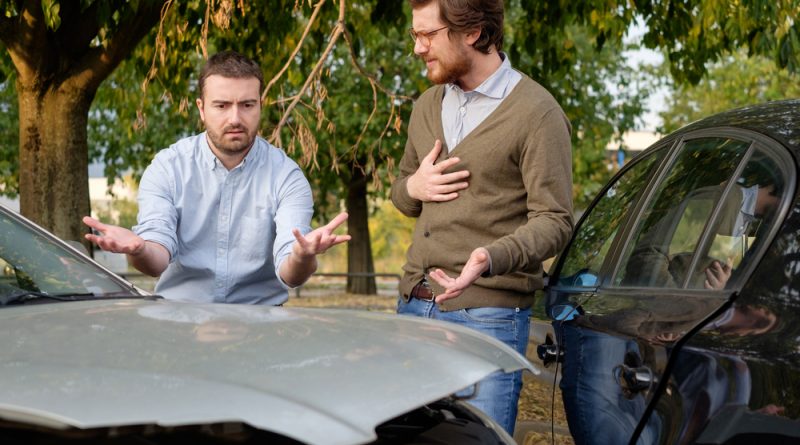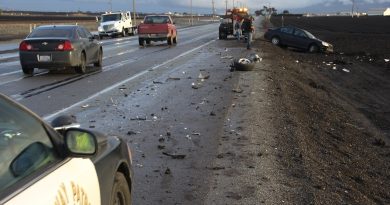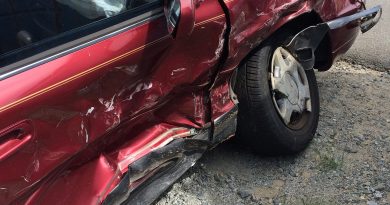Determining who is at Fault after a Car Accident in Florida
What happens immediately following a car accident can make or break a case paying close attention to the details can make all the difference
Immediately after a car accident, your first thought is usually to check and ensure you and all the passengers are safe. Following these checks, you assess the level of damage, exchange personal information, and wait for a law enforcement agent to mediate the car accident case. During your interaction with the police, the word ‘fault’ may be used too often. What is fault? How does it relate to a car accident case in Florida? How is at fault is determined following a car accident?
From a legal standpoint, fault generally involves negligence and when it comes to car accidents, it is a crucial factor in determining who is liable for damages and injuries that were caused by a collision.
Who Determines Fault after a Car Accident?
As a comparative fault state, the insurance companies of the drivers involved in the collision work together to determine the liable party. However, they do not do this independently. The process of determining fault is generally a three-stage process.
Police Report
Upon arriving at the scene of a car accident, police officers collect statement reports from the involved parties to get a perfect balance of the situation. After retrieving the statement, the police officer issues an independent report, most likely ascribing blame to the ‘at-fault’ party.
Assessments by Insurance Companies
The insurance companies involved assess the case using the police reports, medical reports, and level of damage to determine the responsible party. The insurance adjusters are responsible for determining the value that represents the level of responsibility of each party involved in the accident.
Court Rulings
In some cases, individuals involved in the car accident may want to dispute the resolution of insurance adjusters in terms of their compensation. In this situation, the court is a reliable option. At the court, the evidence is reviewed and the claims of responsibility fault for the involved parties and their liabilities are settled.
How Fault is Determined
State laws and state insurance companies differ and so do the rules. Determining fault following a car accident requires proving that the responsible party was negligent. It is the duty of all motorists to ensure the safety of other road users by complying with traffic laws. Failure to follow the set standards can be considered negligence, and the party at-fault may be held liable for any injuries. Although there are several ways to determine the at-fault party in a car accident case in Florida, the three general ways to prove include:
- Physical Evidence
- Traffic laws and standards
- Witness testimony
All three above are used by both law enforcement agencies, insurance companies, and the courts to determine the at-fault party in a Florida car accident situation.
In addition to the three above, the rules are also important, and they blend perfectly to the unique situation of each car accident in Florida.
The rules include:
- A motorist who rear-ends another is at fault.
- A “t-bone” collision usually occurs because of violation of traffic rules such as running a red light, texting while driving, or driving under influence.
- The fault is usually split in multi-car collisions.
- Side-swipe collisions also occur because of reckless driving.
How is Fault Determined in Florida?
There are two car accident laws in Florida that determine how fault works in the Sunshine state.
The No-Fault Car Insurance
All drivers are required to have car insurance with $10,000 worth of property damage and $10,000 worth of personal injury protection under the Florida law. This insurance covers the cost of damages, including medical and repair costs, if you are involved in an accident. It is only when your insurance limit is reached that you can seek damages following a car accident.
Comparative Fault
Under this law, each driver bears some level of responsibility for the accident. However, the level of responsibility may vary depending on the evidence. The compensation received in this case is largely dependent on the level of responsibility of each driver.
What Should I Do if I am at Fault?
Your level of fault following a car accident in Florida determines how much compensation your insurance can help you claim. The higher your fault, the more liable you are and the less compensation you receive. Whatever the case, it is important that you fully cooperate with all institutions involved be as honest as possible while defending yourself and follow the process through as this will go a long way to affect your level of fault.




